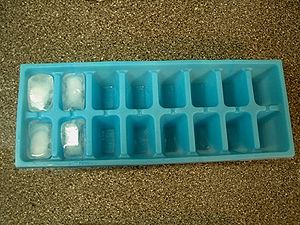Most medical facilities have refrigerators, but do you know the guidelines surrounding refrigerators and freezers? Laboratory Consultant Libby Knollmeyer debuts on Manage My Practice with answers to your most-asked questions.

What kind of refrigerator do I need?
If you need to COOL only…
In most cases, a good quality household refrigerator will suffice if the cubic footage is adequate for what needs to be stored and nothing has to be frozen.
If you need to FREEZE and COOL…
If frozen storage is required, either a NON self-defrosting freezer or a freezer designed to maintain constant temperatures will be required. Household refrigerator-freezer combinations are generally not suitable for critical frozen storage since they must get above the freezing point temperature to self-defrost. While most freezer compartments of refrigerator-freezers will maintain -15C (except for the self-defrost cycle), many vaccines and quality control materials require frozen storage at -20C or colder, which a household refrigerator-freezer will NOT maintain reliably.
When frozen storage is required at -20C or below, a freezer designed to maintain extra-cold temperatures will be required. There are some under-counter models which are relatively inexpensive and require much less floor space than upright freezers or chest freezers. If a household freezer is purchased for reagent, quality control, or vaccine storage, a chest freezer is recommended because the cold air does not fall out of the unit when the door is opened and thus the temperature is more stable.
What about small dormitory refrigerators?
Small dorm refrigerators may be used when temperature stability is not a critical issue, but be aware that they do not maintain constant temperatures nearly as reliably as larger refrigerators or refrigerator/freezer units. These are great for any beverages you keep specifically for patients or for cold packs for injuries or injections.
How should I monitor the temperature of the refrigerator or freezer?
If refrigerated or frozen storage is required by a manufacturer, staff members should monitor and document the temperature of the refrigerator and/or freezer on a daily basis. If the monitored temperature is outside the range provided by the manufacturer, corrective action must be taken and documented to remedy the problem.
For refrigerators and freezers, thermometers suspended in a liquid solution are preferable to one that measures the temperature through the air in the unit since they do not react immediately to the opening of the door or temporary removal of the thermometer to be read. The thermometer used should be either National Institutes of Science and Technology (NIST) certified or NIST traceable. The laboratory or med-surg vendor can assist with selection of a reliable and acceptable thermometer.
Remember that state-supplied vaccine programs as well as accreditation agencies such as Commission on Office Laboratory Accreditation (COLA), Clinical Laboratory Improvement Amendment (CLIA) and Joint Commission on Accreditation of Healthcare Organizations (JCAHO) require cooling/freezing documentation. Many vaccines and medications are also extremely expensive, so it behooves the practice to protect that investment. A sample form to document temperatures is available here.
What if the power goes out?
Transfer the materials to a refrigerator that is operable, if possible, or keep everything in coolers with ice packs. For frozen materials, especially medications, it is imperative that the frozen state be maintained to preserve the integrity of the materials. Long term power outages (e.g. hurricanes or major winter storms) are a real problem. If that is common in the practice’s area, it would be worth the money to purchase a generator.
Could the power go out without me knowing it and the contents be compromised?
Yes, the penny method is to sit a penny on top of an ice cube or small container that you’ve frozen water in. If the power is out long enough for the contents of your freezer to thaw, the ice cube will melt. This will cause the penny to drop to the bottom of the ice cube tray – so check the position of the penny daily. If everything has refrozen but the penny is at the bottom of the ice cube, then everything probably thawed to an extent where it is now unsafe to use.
What is the rule about storing medical supplies, medication or vaccines in a refrigerator or freezer with drinks or food?
Don’t do it. Ever.
Consultant Elizabeth Knollmeyer, B.S., MT (ASCP) has over 40 years experience in the laboratory industry. She specializes in financial, operational management and compliance issues for both hospital and physician office laboratories. Libby has a wide variety of experience with her areas of special expertise including financial review and management, Quality Management protocols, Outreach development, compliance and regulatory assistance, lab design and up fitting, lab remodeling, and market research for IVD manufacturers. She works independently and with large consulting groups to provide interim management for hospitals, and serves as adviser to lab equipment and supply distributors. She can be reached at (336) 288-5823 or at eknollmeyer@triad.rr.com.


